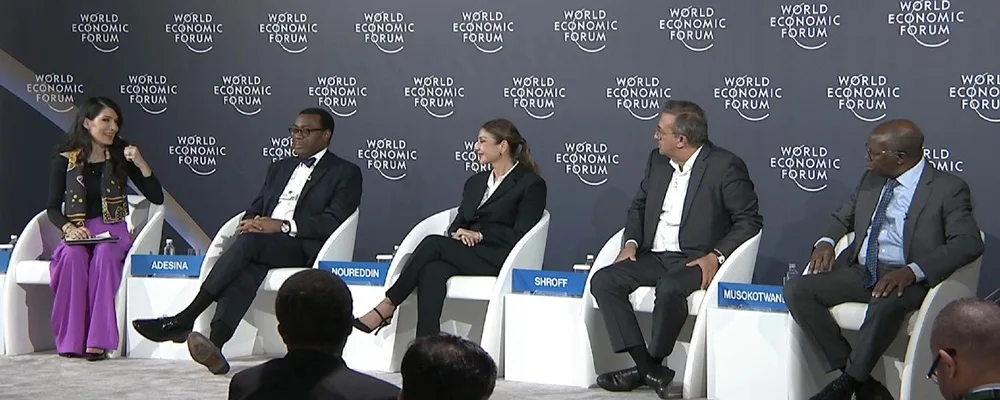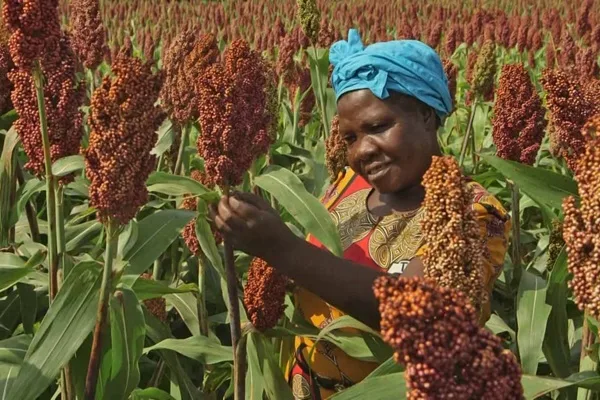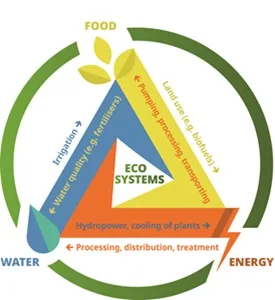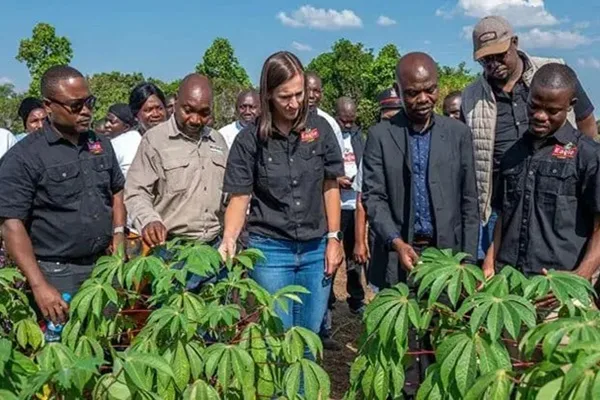WEF Riyadh 2024 Discusses How Africa Can Feed the World
On 30 April 2024 in Riyadh, the World Economic Forum and CNN organized a forum around the theme “Food and Water for All”. AfDB President Akinwumi Adesina, Zambian Minister of Finance and National Planning Situmbeko Musokotwane, UPL CEO Jai Shroff and Lamar Holding President Lina Noureddin took part in a discussion panel moderated by CNN International Correespondent Eleni Giokos.
The panel participants are on the same page with respect to promoting investments and necessary regulatory frameworks in order to ‘properly develop the abundant unused land and vast water resources’ in Africa. Indeed, by some estimates, Africa possesses nearly 70% of the world untapped arable land.

AfDB President Adesina make an impassioned plea for a coalition of public commitment and private financing to awaken Africa’s ‘staggering’ agricultural potential to #FoodSecurity. According to the AfDB, in order to realize this potential, the agricultural sector in Africa will need some USD 78 billion of financing by 2050. The same study shows that the agricultural sector in Africa will be worth nearly USD 1.3 trillion by 2030.
With the negative impacts of #ClimateChange, it has become urgent and crucial to develop and disseminate crop varieties that are resistant to the intensity and frequency of intense climatic events.
In that regard, UPL CEO Jai Shroff shared its success story in Zambia. Due to frequent droughts, the company decided to shift from corn to sorghum. The results spoke for themselves as sorghum thrived while corn perished.

Zambian Minister Musokotwane made an appeal too investors around the world. Africa has the land and water resources to feed the world. What is needed is financial and technical support to turn these idle lands into productive assets.
Speaking about Northern Africa, Lamar Holding President Noureddin mentioned that desalination might be the only option available to the countries within the desertic regions of the Sahara. Desalination via reverse osmosis is an energy-intensive process and thus can cost 2-3 times more than accessing surface or underground water.
Saudi Arabia is the host country for this edition of the WEF and has similar issues with growing food as the country is mostly desertic. To meet the demands, it is contemplating to lease land in nearby Africa to grow food crops in order to ensure its #FoodSecurity.

On another level, there has been some reported cases of the application of #AI to assist in the location of underground water resources. In the same vein, AI forms the core of Smart Agriculture which can lead to better crop management and enhance yields.
To summarize, the expert panel believes that Africa can feed the world if it can tap into the financing, technology and builds up its institutional support to better attract #FDI into this critical sector. The WEF has put forward the triangular nexus of food, water and energy as a conceptual framework to promote global #FoodSecurity.

